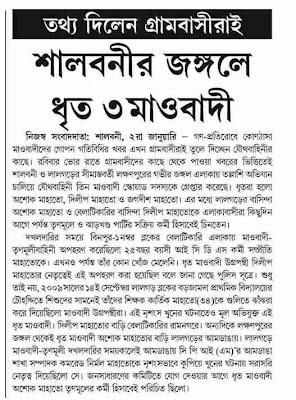THE pesticide named Endosulphan has been used in the agricultural sector for several years throughout the country. It has been in use in many other countries also. Its prolonged use has dangerously affected the people, including farmers and agricultural workers. Kasargod district in Kerala is the worst affected region in India. Its adverse impact on the people of the region has led to it being described as “Mini Bhopal.” The pesticide has caused health problems in some other parts of the country also.
Endosulphan was applied on a large scale in the cashew plantations in Kasargod during the period 1976-78. It was sprayed aerially on the cashew trees all over the plantation area, using helicopters. Consequently, it polluted the rivers, streams and drinking water. The after-effects of the application of the pesticide were found out only after a few years. Later, it was found that the poison contained in the pesticide has affected the health of the people living in 11 villages of the Kasargod district. Thousands of farmers and other inhabitants of the locality suffered from the poisonous attack of the pesticide. Several children were born with physical deformities and some have suffered disorders of the central nervous system. Some other persons suffered cancer, epilepsy, impotency and hormone deficiency. Most of the victims have been permanently disabled. About 400 people have died as a result of Endosulphan poisoning.
The earlier Congress government had banned the use of Endosulphan in the year 2001 but they later revoked the ban in 2004. Several committees and commissions were appointed by the government during the last 20 years. The committees have conducted detailed studies in the affected areas. The reports of the committees were presented before the state and central governments. Most of the committees have found that the use of Endosulphan has caused serious health hazards to people of the region. Only the committee appointed by the central government did not find any poisonous impact caused by the pesticide.
Now the LDF government in Kerala has declared a ban on the use of Endosulphan throughout the state. The government has also requested the central government that it should be banned throughout the country. However, instead of taking a decision to ban Endosulphan, the central government has decided to appoint a new committee to make a further study of the problem. It is to be noted that during the past few years 17 committees have conducted studies into the matter. Among them, there are committees appointed by the government or sponsored by NGOs and agricultural and scientific research centres. Now, there is no need of any new committee to be appointed in this regard.
India is one of the world’s largest users of pesticides. The manufacturers including the MNCs consider our country to be a profitable pesticide market for their products. Monsanto is a major producer of pesticides. It has been found that several crops and vegetables contain dangerously high levels of pesticides in our country because farmers are using them extensively. The use of Endosulphan has been banned in about 65 countries in the world, including the USA. Two months ago, an international convention was held at Geneva to discuss about the organic pollution caused by the use of pesticides. Among the 29 countries that participated in the convention, 26 countries argued for totally banning Endosulphan. India unfortunately took the position that it need not be banned since it is not so dangerous to human health. This shows that the central government is protecting the interests of the big agribusinesses and manufacturers of pesticides at the expense of the peasantry and Indian people.
The All India Kisan Council meeting, held at Kolkata from December 28-30, 2010, demands that the government of India declare a total ban on the use of Endosulphan throughout India. We also demand that the proposed Pesticide Management Bill should make provisions to categorise pesticides under hazardous and extremely hazardous categories and strictly regulate their use in India. We resolve to launch widespread protests against the UPA government’s refusal to ban the hazardous pesticides.
Courtesy: www.pd.cpim.org/






























